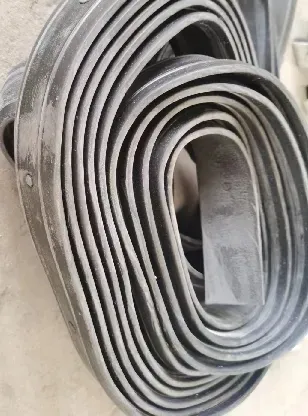loading...
- No. 9, Xingyuan South Street, Dongwaihuan Road, Zaoqiang County, Hengshui, Hebei, China
- admin@zjcomposites.com
- +86 15097380338
- Welcome to visit our website!
Effective Strategies for Managing Industrial Water Resources and Treatment Solutions
Industrial Water Treatment Importance, Techniques, and Innovations
Industrial water treatment is a crucial process that involves the purification of water to make it suitable for industrial applications. Industries such as manufacturing, chemical processing, pharmaceuticals, and power generation heavily rely on water for various operations, including cooling, cleaning, and as a key ingredient in production processes. As global water scarcity becomes a pressing issue, effective water treatment practices are essential for sustainability, regulatory compliance, and operational efficiency.
Importance of Industrial Water Treatment
Water is often referred to as the lifeblood of industry. It plays an integral role in production processes, and its quality can significantly impact the efficiency and safety of operations. Industrial water treatment serves several important purposes
1. Regulatory Compliance Governments worldwide impose strict regulations on water quality to protect public health and the environment. Treating water ensures industries meet these standards and avoid penalties.
2. Operational Efficiency Untreated or poorly treated water can lead to equipment corrosion, scaling, and operational inefficiencies. Proper treatment extends the lifespan of machinery and reduces downtime caused by maintenance issues.
3. Environmental Protection Industrial processes can generate wastewater that, if released untreated, can harm aquatic ecosystems. Effective water treatment minimizes environmental impact and promotes sustainability.
4. Resource Recovery Modern water treatment processes can recover valuable resources from wastewater, such as nutrients and energy, contributing to a circular economy.
Techniques of Industrial Water Treatment
A variety of techniques are employed in industrial water treatment, depending on the specific requirements of the industry and the quality of the source water
. Some of the most common methods include1. Filtration Mechanical filtration removes suspended solids and particulate matter from water. This is often the first step in the treatment process, ensuring a clearer water source for further treatment.
2. Coagulation and Flocculation These chemical processes involve adding coagulants to water to form larger particles (floc) that can be easily removed. This technique is effective for removing colloidal substances that cannot be filtered out.
industrial water treatment

3. Reverse Osmosis (RO) This advanced filtration method uses a semi-permeable membrane to remove a wide range of contaminants, including salts, bacteria, and organic compounds. RO is particularly suitable for desalinating seawater and treating brackish water.
4. Ultraviolet (UV) Disinfection UV light is used to disinfect water by deactivating harmful microorganisms without the use of chemicals, making it a safe option for many industries.
5. Biological Treatment This method uses naturally occurring microorganisms to break down organic matter in wastewater. Techniques such as activated sludge processes and biofilm reactors are commonly used in wastewater treatment plants.
6. Chemical Treatment Chemicals can be added to water to neutralize harmful substances or adjust pH levels. For example, neutralizing acids or alkalines can ensure water is safe for industrial use.
Innovations in Water Treatment
The field of industrial water treatment is continually evolving, driven by technological advancements and the need for sustainable practices. Some notable innovations include
1. Smart Water Technologies IoT (Internet of Things) devices and sensors are being used to monitor water quality in real-time, allowing for immediate adjustments in treatment processes and improving overall water management.
2. Membrane Technologies Advances in membrane materials and design have enhanced the efficiency of processes like reverse osmosis, enabling greater recovery rates and lower energy consumption.
3. Zero Liquid Discharge (ZLD) ZLD systems aim to eliminate wastewater by recovering all water from industrial processes. This innovative approach minimizes environmental impact and reduces water consumption.
4. Sustainable Practices Industries are increasingly adopting water reuse and recycling practices to minimize fresh water intake and reduce wastewater generation, contributing to sustainable operations.
Conclusion
Industrial water treatment plays an essential role in ensuring the sustainability and efficiency of industrial operations. By employing various treatment techniques and embracing innovative solutions, industries can meet regulatory standards, protect the environment, and contribute to a more sustainable future. As water scarcity continues to be a global challenge, the importance of effective water treatment will only grow, requiring ongoing investment in technology and practices that enhance our ability to manage this vital resource responsibly.
-
Why Choose a Galvanized Water Tank for Your Storage NeedsNewsMay.21,2025
-
The Strength and Durability of FRP GratingNewsMay.21,2025
-
The Importance of Water Treatment Systems for Clean and Safe WaterNewsMay.21,2025
-
The Advantages of FRP Rebar for Construction ProjectsNewsMay.21,2025
-
Say Goodbye to Hard Water with a Reliable Water SoftenerNewsMay.21,2025
-
Maximize Your Water Storage with a Sectional Water TankNewsMay.21,2025
-
The Power of Filter VesselsNewsMay.19,2025
